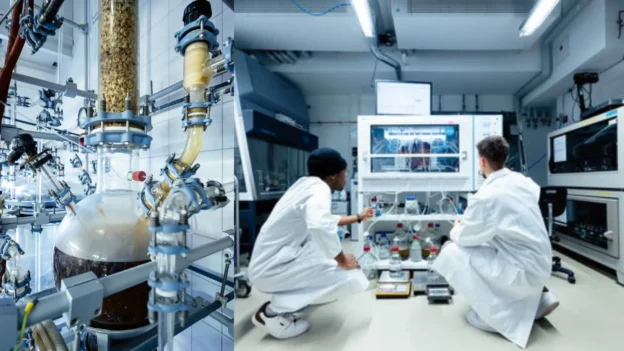German startup Biophelion is redefining the use of industrial waste. industrial waste by means of a black fungus with surprising biochemical abilities. Derived from the Leibniz-HKI institute and based in Jena, the company transforms by-products from the production of bioethanolpaper and sugar into materials of high commercial value.
The fungus that transforms industrial waste
The protagonist microorganism, similar to a black yeast, metabolizes complex carbon mixtures and produces three key compounds: a polyester for packaging applications, the edible biopolymer pululan and an unpublished surfactant whose properties are being studied.
The process avoidsCO2 emissions, closing the carbon cycle and reducing the environmental load.
The project emerged within the framework of the “Circular Biomanufacturing Challenge” of SPRIND, a German agency dedicated to high-risk innovations. During the second phase of the program, Biophelion consolidated its structure as a spin-off in collaboration with the RWTH Aachen. The management team, consisting of Lars Regestein and Till Tiso, maintains active links with the Leibniz-HKI to further refine the bioprocesses.
Pululano for 3D printing
Pululan, already used in food, could replace petroleum-derived plastics in 3D printing 3D printing. Biophelion even plans to design bioreactors printed with this material, capable of producing their own culture containers.
In parallel, the surfactants developed offer an environmentally friendly alternative to conventional compounds used in detergents, with less impact on wastewater.
Source and photo: Leibniz-HKI

